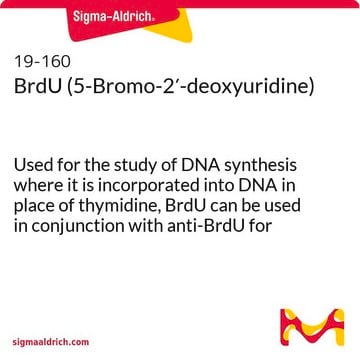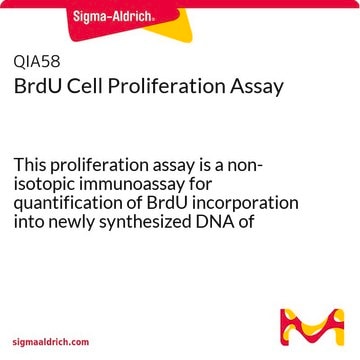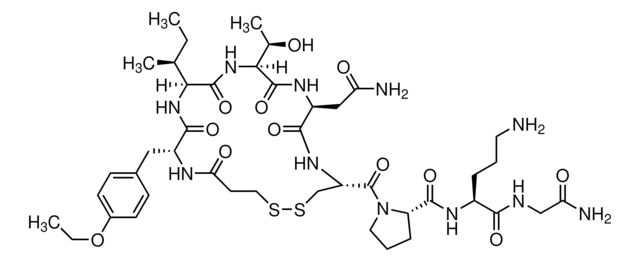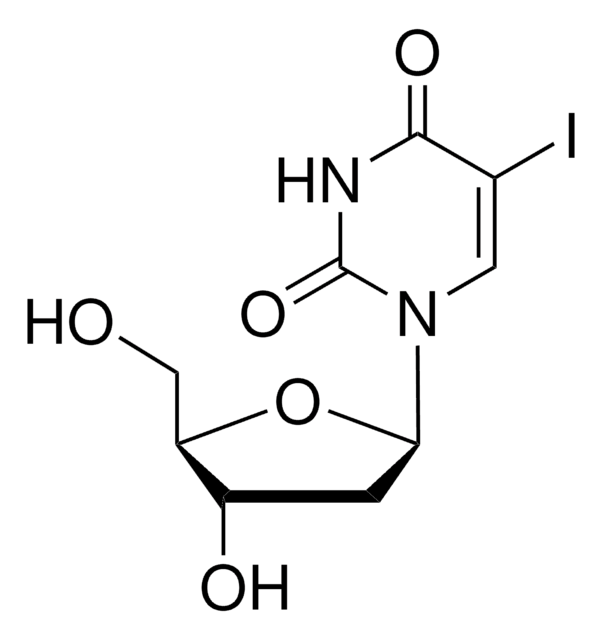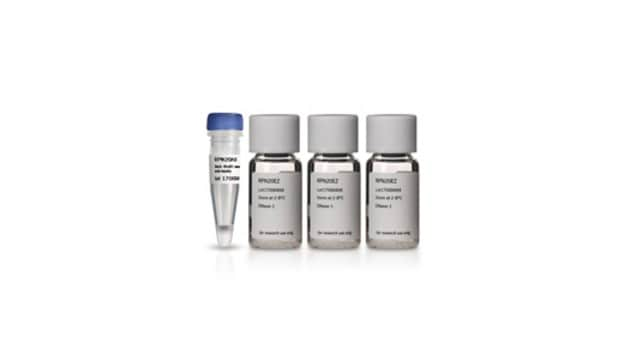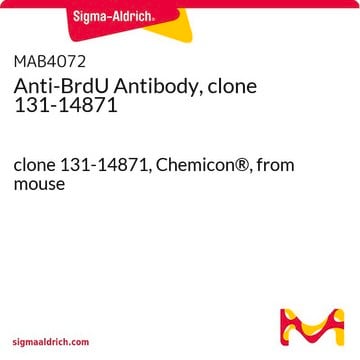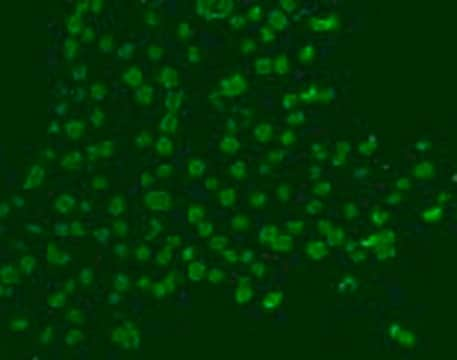B5002
5-Bromo-2′-deoxyuridine
≥99% (HPLC)
Synonym(s):
5-BrdU, 5-Bromo-1-(2-deoxy-β-D-ribofuranosyl)uracil, 5-Bromouracil deoxyriboside, BUdR
About This Item
Recommended Products
biological source
synthetic (organic)
Quality Level
Assay
≥99% (HPLC)
form
powder
mp
191-194 °C (dec.) (lit.)
solubility
DMSO: 50 mg/mL, clear, colorless to very faintly yellow
storage temp.
−20°C
SMILES string
OC[C@H]1O[C@H](C[C@@H]1O)N2C=C(Br)C(=O)NC2=O
InChI
1S/C9H11BrN2O5/c10-4-2-12(9(16)11-8(4)15)7-1-5(14)6(3-13)17-7/h2,5-7,13-14H,1,3H2,(H,11,15,16)/t5-,6+,7+/m0/s1
InChI key
WOVKYSAHUYNSMH-RRKCRQDMSA-N
Looking for similar products? Visit Product Comparison Guide
Related Categories
Application
- as a supplement to study the effect of electroconvulsive seizures on hippocampal neurogenesis
- as a supplement to study the loss-of-gene function in adult zebrafish heart
- in T lymphocyte proliferation assay{133]
Biochem/physiol Actions
also commonly purchased with this product
Signal Word
Danger
Hazard Statements
Precautionary Statements
Hazard Classifications
Muta. 1B - Repr. 2
Storage Class Code
6.1C - Combustible acute toxic Cat.3 / toxic compounds or compounds which causing chronic effects
WGK
WGK 2
Personal Protective Equipment
Choose from one of the most recent versions:
Already Own This Product?
Find documentation for the products that you have recently purchased in the Document Library.
Customers Also Viewed
Articles
Cell cycle regulates vital processes like DNA repair, cancer prevention. Four stages: G1, S, G2, M. NTPs don't permeate membranes.
Cell cycle regulates vital processes like DNA repair, cancer prevention. Four stages: G1, S, G2, M. NTPs don't permeate membranes.
Cell cycle regulates vital processes like DNA repair, cancer prevention. Four stages: G1, S, G2, M. NTPs don't permeate membranes.
Cell cycle regulates vital processes like DNA repair, cancer prevention. Four stages: G1, S, G2, M. NTPs don't permeate membranes.
Our team of scientists has experience in all areas of research including Life Science, Material Science, Chemical Synthesis, Chromatography, Analytical and many others.
Contact Technical Service

